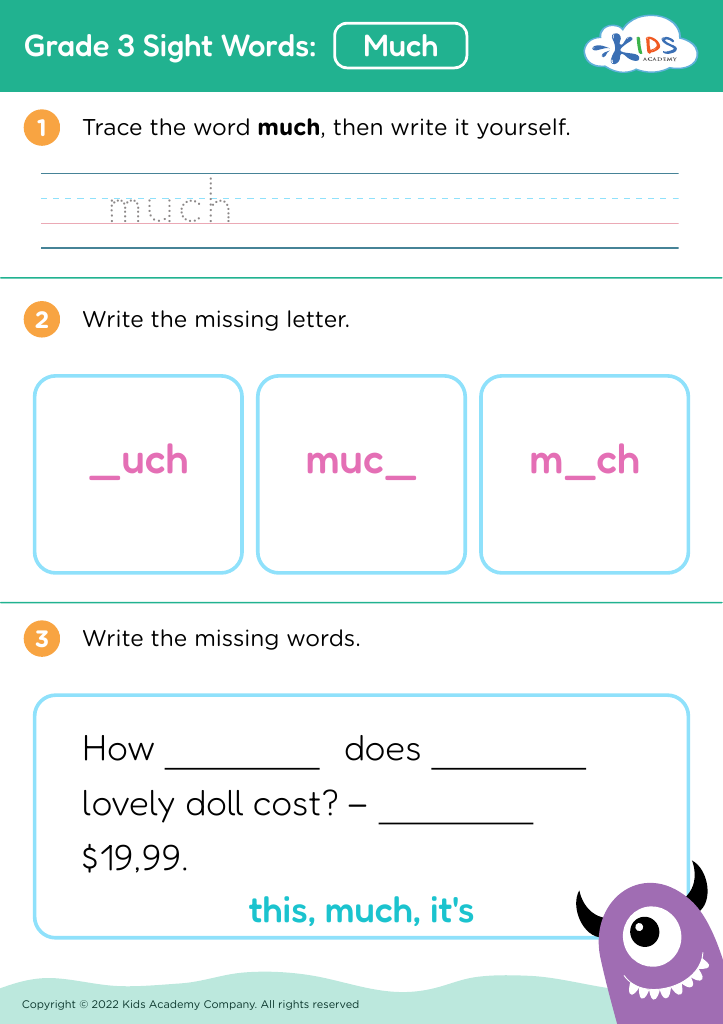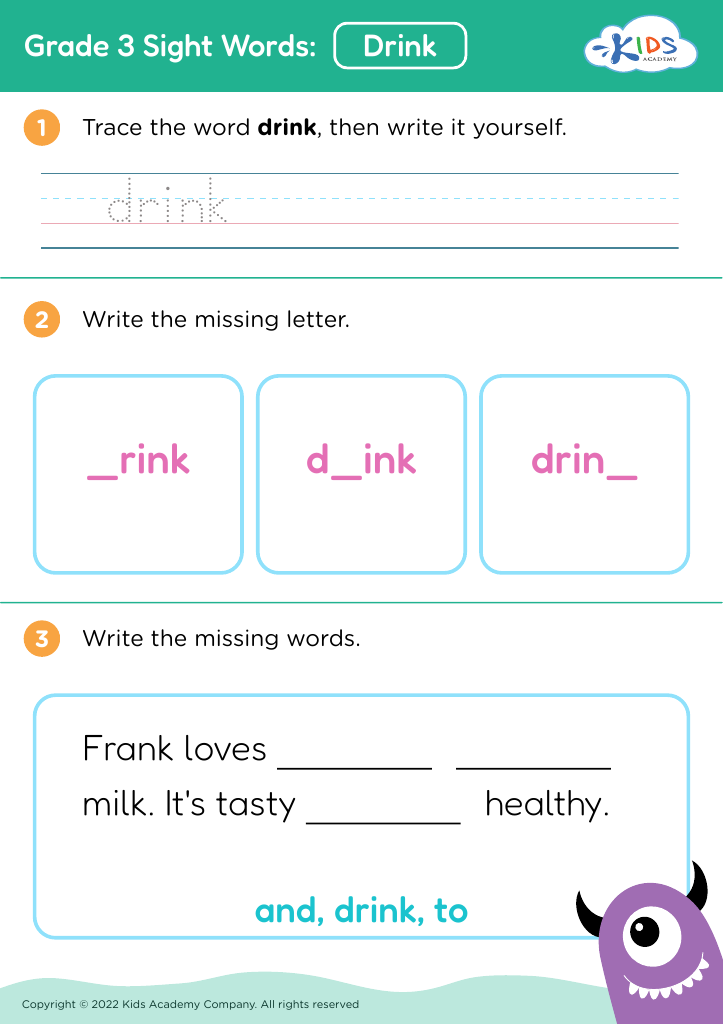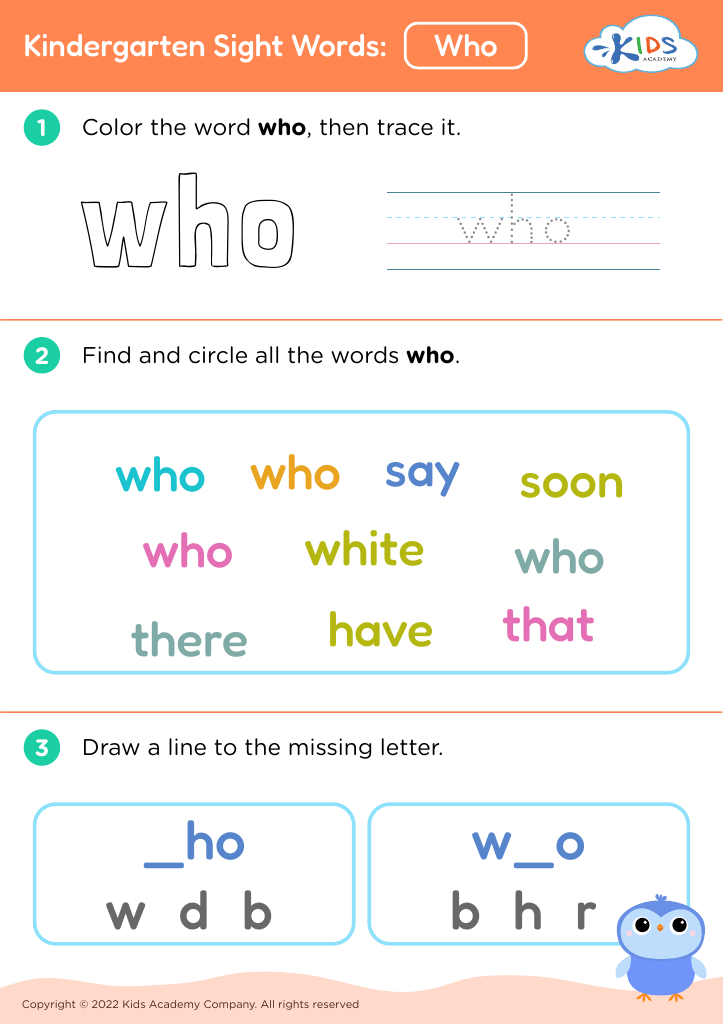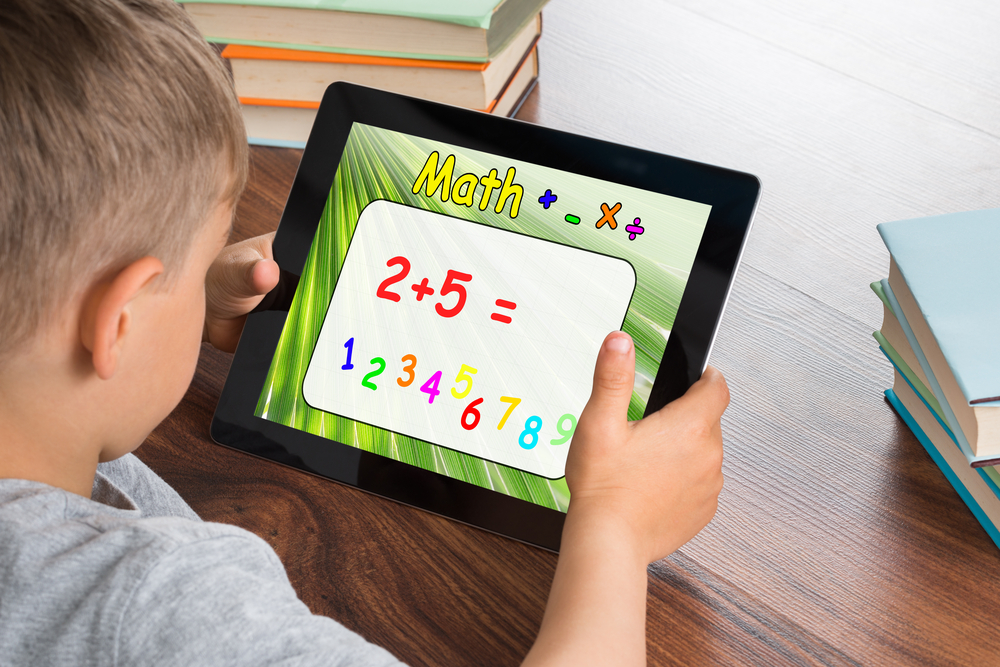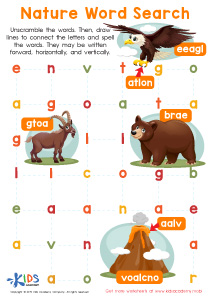Improve vocabulary Sight Words Worksheets for Ages 3-8
3 filtered results
-
From - To
Unlock your child's reading potential with our "Improve Vocabulary Sight Words Worksheets for Ages 3-8." Designed to enhance early learning, these engaging worksheets help children recognize and remember essential sight words. Tailored for young learners, activities include fun exercises, coloring tasks, and tracing letters to enhance both vocabulary and fine motor skills. Premium content ensures a captivating and educational experience suitable for preschoolers to early elementary students. Watch your little one quickly boost their reading confidence and vocabulary, making learning a delightful adventure. Explore now and lay a strong literacy foundation with our expertly crafted resources!
Parents and teachers should prioritize improving vocabulary and teaching sight words to children aged 3-8 because these foundational skills are crucial for early literacy development, which directly impacts academic success and communication abilities. At this sensitive stage of cognitive development, children's brains are exceptionally receptive to language acquisition. Expanding vocabulary enriches their ability to understand the world, express thoughts, and engage in meaningful conversations.
Moreover, sight words—common words that children should recognize on sight rather than phonetically—constitute a significant portion of everyday reading. Familiarity with these words enhances reading fluency, allowing young readers to navigate texts more smoothly and focus on comprehension rather than decoding each word. This streamlining of the reading process builds confidence and fosters a positive attitude towards learning.
Early mastery of vocabulary and sight words sets the stage for future educational success. It bolsters listening, speaking, reading, and writing skills, which are interconnected pillars of literacy. Proficient readers are more likely to excel across various subjects, as they can access and process information efficiently. Thus, by investing time and effort in vocabulary and sight word instruction, parents and teachers equip children with essential tools for lifelong learning and effective communication.

